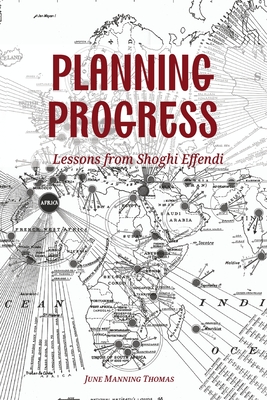
description
f the idea that planning as a skill is essential to human progress, but that some individual exemplify this skill more than others, and furthermore that such individuals may be able to help organizations move in a more purposeful direction. The book reviews planning theory in relation to planning for a better future, looking at such classic authors as and then explores the planning style of one key leader, Shoghi Effendi, to show how such strategies as vision, encouragement, and feedback can help improve the planning outcomes for a range of human organizations. Other major components of able planning include consultation, goal-directed behavior, and meaningful action.
The original letters of Shoghi Effendi, dating largely from 1936 to 1957, offer illustrative text for these principles. In this particular case, his leadership of a worldwide spiritual community devoted to the principles of unity and justice and yet stymied by low growth rates drew successfully on such principles in order to achieve progress in a series of countries and continents. The book includes practical suggestions for improving the planning success of organizations private and public as well as of individuals.
member goods
No member items were found under this heading.
Return Policy
All sales are final
Shipping
No special shipping considerations available.
Shipping fees determined at checkout.







